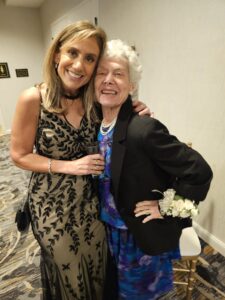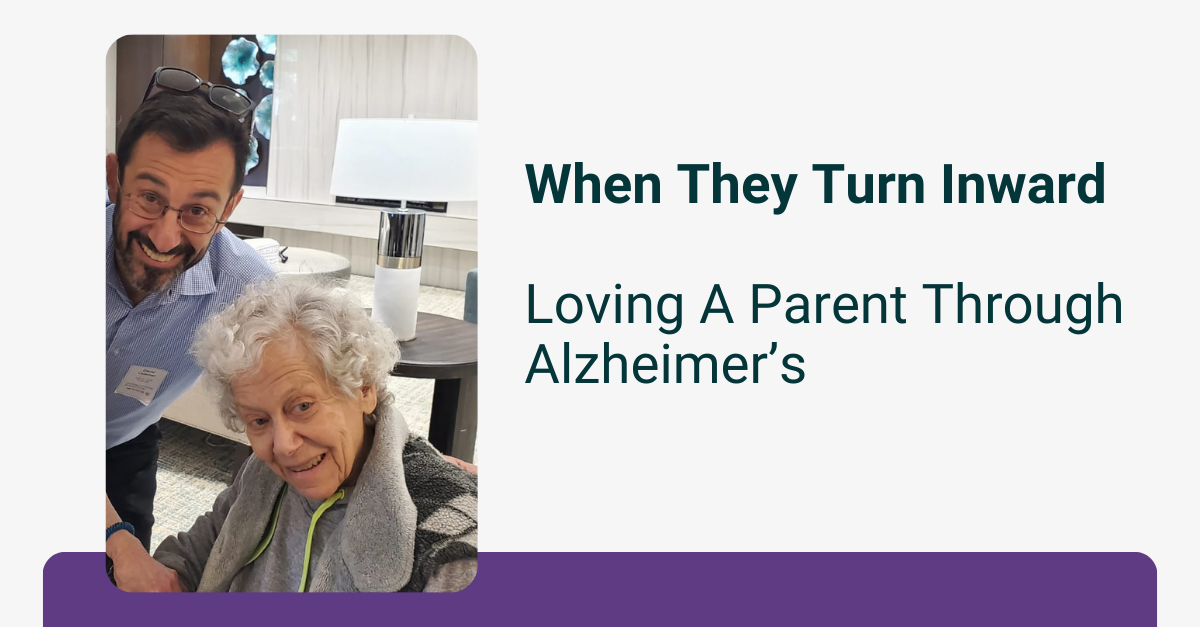One of the most difficult parts of my mom’s Alzheimer’s journey has been watching the way it has changed her spirit; Especially her vibrant, social side.
My mom used to be the most outgoing woman in the room. She lit up every space she entered – laughing, talking, and starting conversations with anyone, whether she knew them or not. She had this beautiful energy that drew people in. Helping others came naturally to her. Talking, listening, giving – those were her love languages.
But now, that sparkle has faded. Slowly, almost quietly, she’s turned inward.

Life in Her Own World
She still perks up when we walk into the room. She still loves hugs and kisses. But most of the time, she’s living in her own world—a place that’s quiet, distant, and hard to reach.
You can sit beside her, speak softly, ask gentle questions… but the words don’t come as easily anymore. Sometimes they don’t come at all.
And that’s the change that’s hardest to understand.
The Heartbreak of Alzheimer’s
This is what Alzheimer’s does. It doesn’t just take away memories—it can take away personality, connection, and the spark that once defined someone.
While my mom may not fully realize what she’s lost, the rest of us feel it deeply.
For my siblings, visits have become more challenging. They don’t always know what to do. They sit, they try to connect, but after a few minutes, the silence feels heavy. They leave wondering if they made a difference.
I get it. It’s heartbreaking to watch someone you love become a quieter version of themselves.
She’s Still There
Here’s what I remind myself: even though she’s turned inward, she’s still there. She still needs love, presence, and interaction.
She just can’t reach out for it the way she used to. She can’t initiate the conversation. She can’t tell you she wants you there—but she does.
Even if she doesn’t speak.
Even if she doesn’t seem to notice.
Your presence still matters.
Learn more about connecting with loved ones in late-stage Alzheimer’s
Why Connection Still Counts
Research in dementia care shows that emotional connection can still register even when verbal communication is limited. Eye contact, touch, and a gentle tone of voice can trigger positive feelings and provide comfort.
This means that even in the quiet, your love is still reaching them.
You’re Not Alone
If you’re walking this Alzheimer’s journey with someone you love, know this—you’re not alone.
In future posts, I’ll share practical tools and ideas for staying connected with a loved one who has turned inward. But for now, just remember: your presence still matters. The love is still there. It’s just quieter now.

